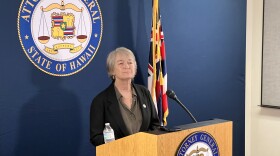In the midst of his inaugural State of the State address last week, Gov. Josh Green issued an emergency proclamation to address homelessness. The order eases some of the governmental "red tape" for constructing 12 kauhale, or tiny village, projects.
While the move was applauded by lawmakers and stakeholders in the crowd, community members had questions.
James Koshiba, Gov. Josh Green's coordinator on homelessness, wanted to clear up some misconceptions. He said that while many people think this proclamation is a "free pass for developers" to start new projects, there are still limits.
"The truth about any project that's designed to house houseless folks, they are going to be expensive to operate — they're likely to require ongoing subsidies. These projects are not attractive to for-profit developers," he said.
Former Gov. David Ige signed emergency proclamations on homelessness between 2015 and 2020. These allowed kauhale such as Puʻuhonua O Waiʻanae to be created.
Koshiba told HPR that Gov. Green's proclamation was the same as those signed by Ige.
"Proclamations that stood between 2015 and 2020 had the same exemptions as this proclamation, but [had] no guardrails or rules for environment or culture for how projects would be certified as eligible," Koshiba said. "Now there's language in the proclamation that makes it clear there will be those rules."
Another change to the proclamation gives developers more security than before by allowing projects more time to complete construction.
"Old proclamations said projects can be covered up to three years. Whereas, this proclamation says that, if they started with a proclamation, they can finish with the same exemptions," he said.
Koshiba told HPR there have been cases where providers would start the process of building a development, but the proclamation would then expire — forcing the provider to start the process over again.
"That kind of unpredictability would be disastrous both for the organization and for the people being served," he said.






